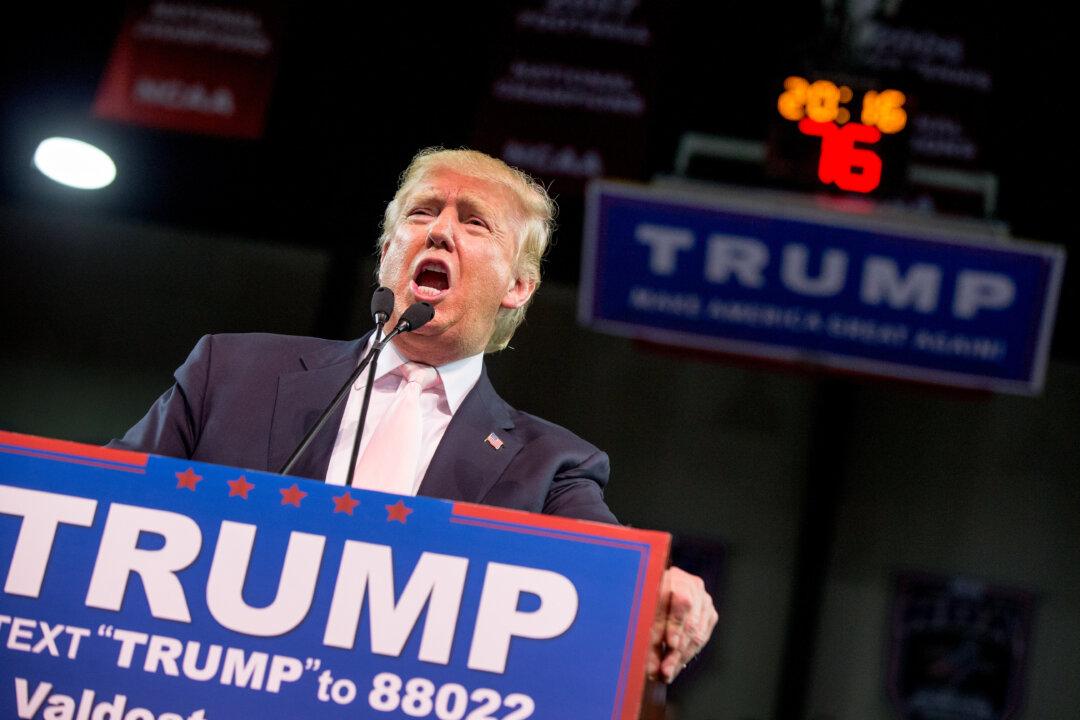WASHINGTON—The possibility of Donald Trump as Republican nominee — and perhaps president — is suddenly very real for the GOP in Congress.
After months of denial that the billionaire businessman could swipe the nomination from more establishment candidates, disconsolate Republican senators and House members dealt with a growing inevitability after Trump’s wins in seven states Tuesday cemented his front-runner status.
Some Republicans said they could work with him, while others openly wondered if that were possible. Some held out hope for other candidates — specifically Sen. Marco Rubio of Florida, whom several senators have endorsed. Others raised the specter of a contested convention in July.
“I think those of us who have spent a little bit of our life predicting politics, this is almost totally unpredictable,” said Missouri Sen. Roy Blunt, a member of the Senate Republican leadership. “So I don’t know how you predict the path going forward. I do think there’s very little that incumbent members of the Senate who aren’t running for president can do to impact it.”
Other senators agreed that there’s not much a Congress with single-digit approval ratings can do to sway anti-establishment voters after Trump’s disparate wins Tuesday night, in states like Massachusetts, Alabama and Virginia.
“We'll speak out when we don’t agree, but I don’t think any of us think we can change the course of events by telling people how to vote,” said Sen. Jeff Flake, R-Ariz.
Sen. Bob Corker of Tennessee, who saw Trump win his state on Tuesday, said Americans on both sides of the aisle are “creating their own insurgency” as a fractious Congress has failed to resolve critical issues.
Republicans, who hold a 54-46 edge in the Senate, have to protect more seats, including seven in states that President Barack Obama won twice. The message from leadership to vulnerable lawmakers: Run your own campaigns regardless of what’s happening on the presidential level.
“Right now there’s just a sense of, we don’t have a lot of control over this,” said Republican Sen. John Thune of South Dakota, another member of GOP leadership. “A lot of us wish we did, but we don’t, and as long as we don’t, the only thing we can do is take care of our own business.”
At the same time, some senators aren’t ready to concede the race to Trump. South Carolina Sen. Lindsey Graham, a former White House contender, suggested that Rubio and Sen. Ted Cruz combine forces to stop Trump. But it was unclear how such a scenario would work.
“I don’t know how they do it, but it would be good for the party if they could,” Graham told reporters.
Rubio supporters said he can still win the nomination. Sens. Tim Scott of South Carolina, Orrin Hatch of Utah and Cory Gardner of Colorado said they still see a path for the Florida senator. So far Trump has won only 46 percent of the delegates, even though he has won 10 of the first 15 contests. It takes 1,237 delegates to win the nomination.
Other senators said if the candidates continue to fracture the vote, it could lead to a contested convention. While some held out hope for such a development, others said it wouldn’t be ideal. Sen. Ben Sasse of Nebraska said he would look for a third candidate if Trump becomes the nominee.





